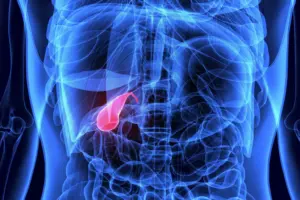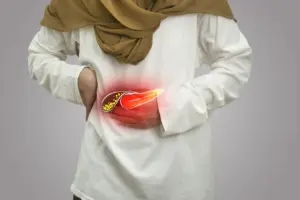
Gallstone Surgery Recovery: For many people living with gallstones, surgery feels like a turning point. The sharp stomach pain, bloating, or nausea usually disappear once the gallbladder is removed. But like any procedure, recovery takes time, and a little extra care can make a big difference in how quickly and comfortably you heal. This guide will help you prepare for and recover from gallbladder surgery.
What is gallstone surgery?
Gallstone surgery involves removing the gallbladder, a small organ that stores bile. When stones form inside it, they can trigger severe pain or infections, making surgery the best solution. In most cases, doctors perform laparoscopic surgery, where a few tiny incisions are made and a camera is used to remove the gallbladder. This method causes less discomfort and allows for quicker recovery compared to traditional open surgery.
Also Read | How to dissolve gallstones without surgery: What works?
How long does it take for you to recover from gallstone surgery?
Most people begin to feel better within one to two weeks after laparoscopic gallbladder surgery, with many able to return to light activities or even desk jobs fairly quickly. Full recovery usually takes about two to three weeks, since the incisions are small and healing is faster.
For open surgery, recovery takes longer, generally four to six weeks. In both cases, the first three days should be dedicated mainly to rest, with only short walks to keep blood flowing and prevent stiffness. Over the next two weeks, you can gradually resume light daily tasks. By the third or fourth week, most people are ready for moderate activities and returning to work. After a month, recovery is usually near complete for laparoscopic patients, while open surgery patients may still need a little more time before feeling fully normal.

Tips for a smooth recovery from gallstone surgery
After gallbladder surgery, your body requires ample rest, so be gentle with yourself. Start small with short walks to help your blood flow and reduce the risk of clots. Since your body is adjusting to digesting food without a gallbladder, stick to small portions of low-fat meals. This will reduce discomfort and support smoother digestion. Keep yourself well-hydrated by drinking plenty of water, which also helps prevent constipation. If your stomach feels unsettled, warm herbal teas can be soothing.
Avoid lifting anything heavy for at least a couple of weeks. Straining too soon can cause pain or put pressure on your surgical recovery.
When should you call the doctor?
Most people recover without issues, but it’s important to watch for warning signs like fever, severe pain, or persistent nausea.
Also Read | When should you consider surgery for gallstones?
Gallbladder surgery often brings big relief, but healing takes time. With rest, smart food choices, and patience, you’ll gradually feel like yourself again. Be gentle with your body, eat wisely, move slowly, and let recovery take its course.








